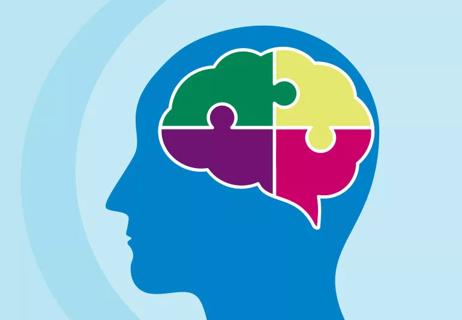Advertisement
Plus, helpful tips for managing SAD during these challenging times

Hate to say it, but we’re a few weeks away from the end of summer.
Advertisement
Cleveland Clinic is a non-profit academic medical center. Advertising on our site helps support our mission. We do not endorse non-Cleveland Clinic products or services. Policy
You know what that means. Soon, we’ll be rolling in leaves, watching (some) fall sports, sipping on PSLs and pulling out our sweaters. However, those seasonal joys also come along with shorter days and gloomier weather — and that’s enough to put many of us in a funk.
This year is a little different though. On top of having to manage seasonal depression, also known as seasonal affective disorder (SAD), some people will also have to contend with the demands of life during a pandemic — and the stress that comes with them.
If you’ve already been having a hard time, psychologist Scott Bea, PsyD, says the upcoming months might be even tougher for those who have been experiencing SAD year after year.
“It’s going to be a real challenge for individuals who experience seasonal affective disorder routinely as we get to the fall and winter months. It’s going to be particularly challenging because the pandemic will most likely accentuate some of the conditions that facilitate seasonal affective disorder,” says Dr. Bea. He attributes this to spending less time outdoors or not having as many occasions to get out of the house.
“People are already experiencing low-grade depression — we’re already feeling some helplessness, hopelessness, irritability, confinement and soon, the winter months will be added to all of it. With shorter daylight hours and limited exposure to daylight, those who experience seasonal affective disorder are going to really be challenged,” says Dr. Bea.
Try not to. If you already know how SAD affects you, Dr. Bea recommends developing helpful habits now to offset its impact.
“It’s really important to take steps in advance of the season to create habits that might help individuals who have seasonal affective disorder as the fall and winter months approach,” says Dr. Bea.
Here are a few things that he recommends doing to get prepared.
Refuse to feel helpless. “If we lapse into victimization or helplessness, that is not going to be good for managing our moods. Think about starting an exercise regimen. We know that just about any type of physical exercise can make a difference in our moods.”
Maintain social connections. “That’s one thing that often falls away, and yet, our social connections can be a mood booster for us during the fall and winter months.”
Advertisement
Consider buying a therapy light. “That’s a light that shines 10,000 lux of brightness. You’ll need to sit in front of one about 30 minutes a day. You can start doing that even before the fall months are upon us. Start sometime in September as an additional measure.” Dr. Bea adds that you’ll need to use a therapy light daily to feel the benefits.
Seek help if you had struggles with SAD in the past. “Really consider getting professional help, particularly with the season and the pandemic. With the additional challenge, it’s an ideal time to do so.”
If the slightly earlier sunsets and cooler weather are putting you on edge, Dr. Bea suggests not allowing those feelings pull you under.
“Don’t collapse. Don’t give into those feelings. A good biological treatment for depression is called activity scheduling. It might not have a lot of appeal for people on the surface, but if you can schedule your days and blocks of time with meaningful, purposeful, recreational, interpersonal and connecting sorts of activities, commit yourself to them. That gets you out of your mind — the place where a lot of the misery can occur,” says Dr. Bea.
Dr. Bea explains that it’s not always easy for people to notice if they’re experiencing SAD. He says that people who are diagnosed with SAD often have a history of depression throughout the year. Their depression can be magnified a little bit during the fall or winter months.
“Signs of SAD may include a tremendous urge to sleep a lot, craving carbohydrates, lack of motivation and increased irritability. These symptoms are usually recurring and sometimes, it takes a professional to really notice or discover the pattern. If somebody is experiencing depression at other times of the year, they may not always take note of that.”
It’s hard to say since we’ve never experienced a global pandemic before. Dr. Bea strongly believes that this will be investigated scientifically and systematically over time on the clinical side.
As for what he’s noticed so far, Dr. Bea says people seem to be less motivated or their regular activities have started to fall away.
“The coronavirus pandemic has intensified symptoms in many people. But for those with behavioral health or psychiatry diagnoses, those symptoms have intensified as well, particularly for individuals with obsessive-compulsive disorder (OCD),” says Dr. Bea. He adds that people with OCD might be even more concerned about skin contamination or bacteria right now and the concern can be really intense. It might also be hard for them to leave the house for fear of exposure, or they might also engage in excessive efforts to protect themselves from the coronavirus.
Dr. Bea also says that with less to do, it’s easier for us to start fixating on our thoughts. “When there are fewer things to do, people tend to notice their thoughts a little bit more — and where people go to be really distressed is into their own thoughts.”
As mentioned earlier, exercising can help boost our mood. But if getting pumped up or sweating it all out doesn’t appeal to you, Dr. Bea recommends doing activities that don’t seem like exercise. Take a walk, play a game that involves movement or just get outside. You can even give your mind a workout to ease worry or stress.
Advertisement
“Anything that pulls you outside of your self-awareness is useful. And if you have to be self-aware, try a mindfulness practice. There are many ways to learn mindfulness. There are apps for our smart devices, there are YouTube videos that teach mindfulness — all of that can be useful. Find things that are entertaining — things you’ve never tried before. Learning a new skill or rekindling an old skill — all of these can be valid ways of boosting our mood.”
If you find yourself trying to lift your spirits but nothing seems to help, Dr. Bea recommends seeking professional help. A primary care physician or mental health professional will be able to determine the best treatment option for you whether it be medication or another form of psychotherapy.
With everything being turned upside down, it’s easy to focus on what’s going wrong. But Dr. Bea believes the key to making it through all of this is to focus on the present and to avoid dwelling on the things that we’re missing.
“The practice of mindfulness involves being super attentive to what’s going on right now. Little events like feeling the texture of your cup of coffee, really tasting the coffee or feeling the heat, letting your senses come alive — being active in the real moment. It’s a great time to do that. We’re going to feel penalized. There’s not one person in the pandemic that hasn’t been disappointed or felt a sense of loss or grief for something that has gone away or been taken away. It’s something we’re all contending with. We might find a little sense of camaraderie or share some of our sentiments with others in order to create a bond. Again, rather than feeling helpless, take some action that restores you a little bit.”
Learn more about our editorial process.
Advertisement

A more open conversation on athletes and their mental health needs is overdue

Combat stress and anxiety — common chronic hives triggers — by focusing on sleep, staying active and leaning on others for support

Fostering romantic and/or sexual feelings for other people outside of your relationship can lead to long-term consequences

Taking care of yourself extends beyond symptom management and includes things like passion projects and meaningful moments

Connecting with loved ones, keeping a gratitude journal and reframing the situation may help the dread dissipate

Support groups, financial assistance and survivorship programs are all readily available

Our collective misremembering of events comes from a surplus of false memories

This alternative brain-body therapy focuses on unlocking pent-up feelings, memories and tension that may be stuck in your brain and body

Focus on your body’s metabolic set point by eating healthy foods, making exercise a part of your routine and reducing stress

PFAS chemicals may make life easier — but they aren’t always so easy on the human body

While there’s little risk in trying this hair care treatment, there isn’t much science to back up the claims